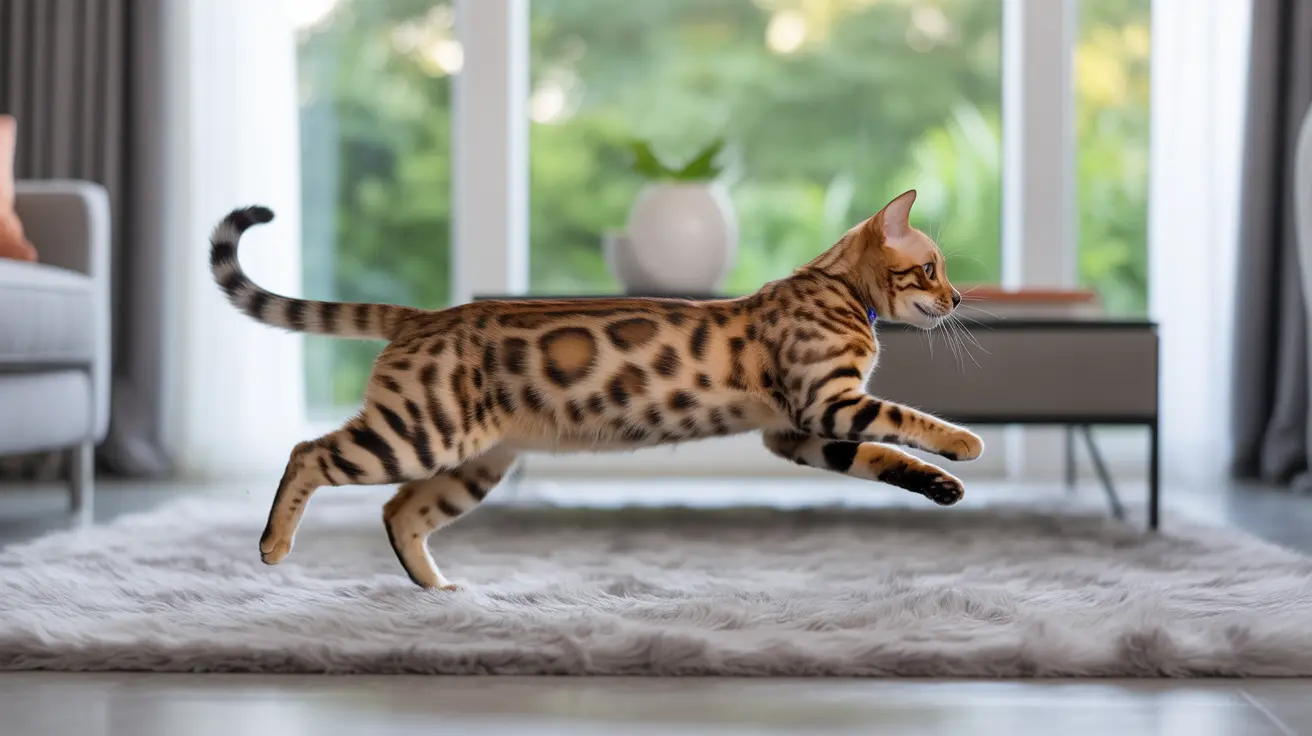The Science Behind Post-Poop Zoomies
The primary biological explanation for why cats run after they poop involves the vagus nerve, a crucial pathway that connects the brain to various organs, including the digestive system. When cats defecate, this nerve is stimulated, potentially triggering a temporary sensation of euphoria or lightheadedness – a phenomenon sometimes called "poo-phoria."
This neurological response can create a sudden burst of energy, prompting your cat to dash around the house in what appears to be celebration or relief. The effect is similar to the runner's high that humans experience after intense exercise, though much shorter in duration.
Evolutionary Instincts at Play
Cats' post-poop running behavior also has deep roots in their evolutionary history. In the wild, the scent of fresh feces could attract predators, making cats vulnerable during and immediately after defecation. Running away from their waste serves as an instinctive survival mechanism to avoid detection.
Even though our domestic cats face no real threats in our homes, this ingrained behavior persists as part of their genetic programming. It's similar to how cats still hunt and stalk toys despite having regular meals provided by their owners.
Physical Relief and Celebration
Sometimes, the simple feeling of physical relief after using the litter box can trigger an emotional and energetic response in cats. This celebration of completing their business might manifest as a burst of joyful running, especially in younger cats who are naturally more playful and energetic.
Think of it as similar to how children might jump around and celebrate after achieving something they're proud of – it's a natural expression of feeling good and relieved.
When to Be Concerned
While post-poop zoomies are generally normal, there are times when this behavior might signal underlying issues. If your cat suddenly starts displaying more intense or frequent post-litter box running, or if they show signs of discomfort while using the box, it's worth paying attention.
- Straining during defecation
- Blood in the stool
- Unusual vocalizations
- Avoiding the litter box
- Changes in stool consistency
Creating a Positive Litter Box Environment
To ensure your cat has the best possible experience with their litter box, maintain a clean and comfortable environment. Regular scooping, proper litter depth, and strategic box placement can help reduce stress-related zoomies and promote healthy bathroom habits.
Frequently Asked Questions
Why do cats suddenly run around crazily right after they poop?
Cats run after pooping due to a combination of vagus nerve stimulation, evolutionary instincts to avoid predators, and physical relief. This behavior, known as "zoomies," is typically normal and healthy.
Could my cat's zoomies after pooping mean there's a health problem?
While post-poop zoomies are usually normal, sudden changes in intensity or frequency, accompanied by signs of discomfort, straining, or unusual stool, could indicate health issues requiring veterinary attention.
How does the vagus nerve affect a cat's behavior after using the litter box?
The vagus nerve, when stimulated during defecation, can trigger a temporary sensation of euphoria or lightheadedness, leading to sudden bursts of energy and running behavior.
Can a dirty litter box cause my cat to sprint away after pooping?
Yes, cats may run quickly from a dirty litter box due to discomfort or aversion. Maintaining a clean litter box can help reduce stress-related running behavior.
Is it normal for young cats to have zoomies after going to the bathroom?
Yes, younger cats are more likely to experience post-poop zoomies due to their naturally higher energy levels and more playful nature. This behavior often decreases as cats mature.
Conclusion
While it might seem strange to us, running after pooping is a perfectly normal behavior for most cats. Understanding the biological, evolutionary, and environmental factors behind this quirky habit can help us better care for our feline friends and know when changes in their behavior might warrant veterinary attention.






